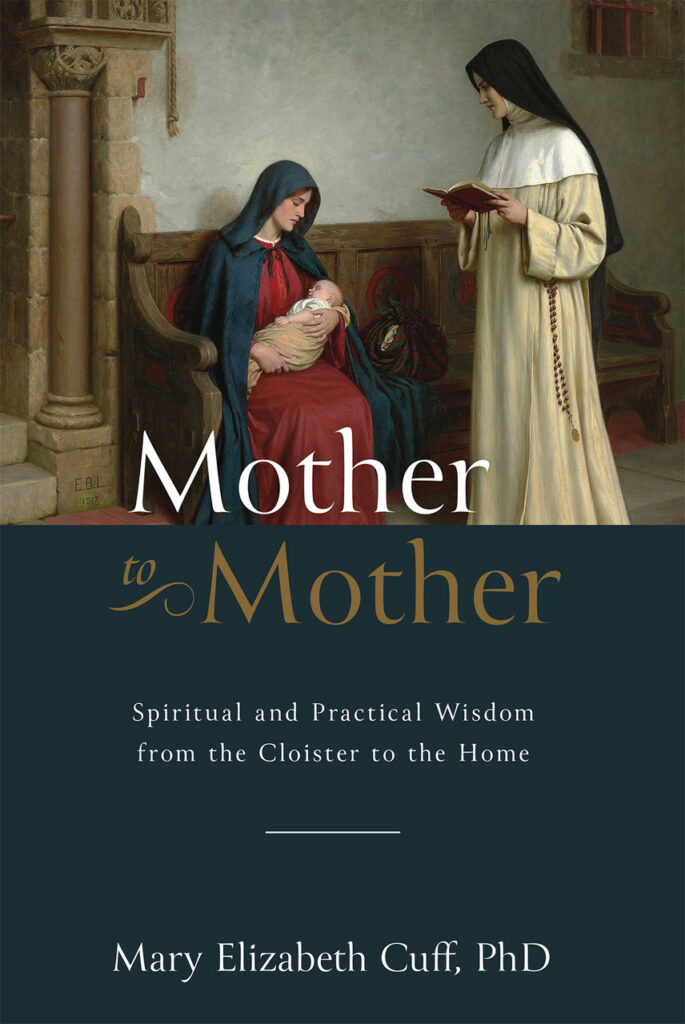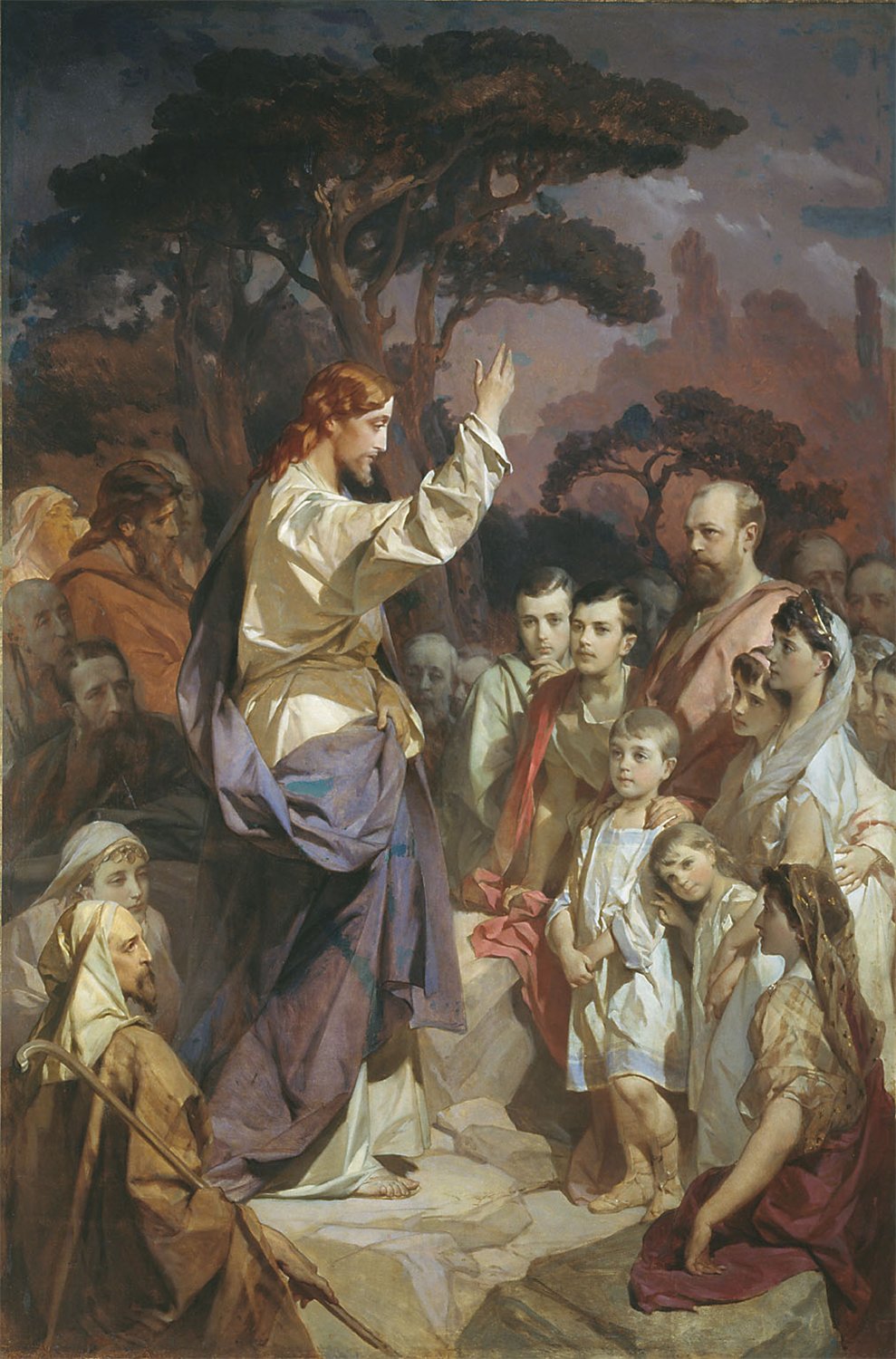Mother to Mother introduces moms to contemplative nuns who offer priceless wisdom on the spiritual and practical struggles of the home. Read on for two thoughtful Q&A’s about the essence of motherhood and femininity.
Question
Both of the ancient vocations which the Church has offered women are focused around the idea of motherhood. In the married vocation, wives promise to accept children from God and fulfill the role of motherhood, while in the religious vocation, nuns are described as spiritual mothers. What is a spiritual mother and what does it share with a physical mother?
Answer by Sister Clare, Capuchin Sisters of Nazareth
Saint Francis of Assisi would say to his Friars: “If a mother nourishes and loves her own son (cf. 1 Th 2:7) according to the flesh, how much more diligently ought he love and nourish his own spiritual brother?”
The same can be said for our sisters in religious life, the people we live with day to day. How do we “nourish and cherish” them? We cook for each other, we clean up after each other, we serve, love, and respect one another; but just as a mother doesn’t do these things for her children out of “duty,” so we sisters strive to do these things out of love for Christ, who is present within each sister.
A mother doesn’t see herself as a servant or slave unless there is no love, and she is resentful of her life. When a woman is a mother who loves, even the most menial tasks (like changing diapers or running errands) are not below her dignity because it is her place in the family. We can see these tasks as opportunities to love or as degrading duties that must get done in the drudgery of the day; this is what makes a world of difference.
Question
The progressive attitude awash in society wants us to think of parents as gender-neutral. So many people assume that “father” and “mother” are interchangeable terms for someone who is the caretaker of their children. But as Christians, we know that fatherhood and motherhood are both more sacred and unique than that. After all, we are taught that God is our heavenly Father, not simply a divine parent. We also know that He wanted us to have a mother, and so He gave us the Virgin Mary, who is so much more than just the physical means by which Christ came into the world. Being a religious mother, you are also called to be more than an administrator of a collection of women. What have you discovered about this distinctive role of a mother?
Answer by Mother Mary Angela and the Roswell Poor Clares
This is a very large question, and I believe it would take a book to answer it thoroughly! While the gift of serving as the mother abbess of a religious community differs in many ways from the gift of natural motherhood, there are many wonderful similarities. The role of the mother abbess is that of spiritual motherhood, which blends the service of authority with the tenderness of maternity.
All authority is ordered toward growth, whether in the family or the religious community. It is a great help in religious life if the community understands that authority, rules, and regulations exist to help us grow, not to diminish our freedom. The same can be said for discipline. When the spiritual mother has to correct, she tries to avoid “laying down the law” but seeks to point out the ideal, and she seeks to help a sister understand and seek the freedom that comes from obedience to God’s law.
Spiritual maternity is expressed in love that nurtures each individual and seeks to help each sister grow to be the religious woman that God desires her to be. This means growth at all levels: spiritual, intellectual, social, human, and most importantly, as brides of Christ and as spiritual mothers themselves. This means looking for opportunities to help sisters grow, whether as a community or on the individual level, and helping the sisters to identify God’s call to growth in the daily events of life.
The mother of a family, be it religious or natural, has a critical role in determining the atmosphere of family life. This means cultivating an atmosphere of warm charity, ready forgiveness, mutual respect, and appreciation in community; first by striving to practice these virtues herself. Her deep and genuine respect for each person has a permeative effect upon the “climate” of community life—her courtesy, thoughtfulness, readiness to sacrifice for the good of her sisters, her sincere interest in all that interests them, etc.
That said, the highest priority for the spiritual mother has to be prayer! Praying for her sisters can often change the whole dynamic of a “problem,” and it deepens the understanding of a situation like nothing else can. The Holy Spirit can, in a wonderful way, help the spiritual mother to understand better what a sister is experiencing, how she sees things. It also reminds the spiritual mother that everything does not depend on her, but on God, and that she is simply His instrument. Praying to the sister’s guardian angel and to her patron saint is also a very effective way to deepen a spiritual bond with her.
ooo
This article is taken from a chapter in Mother to Mother by Mary Cuff, PhD which is available from TAN Books.









